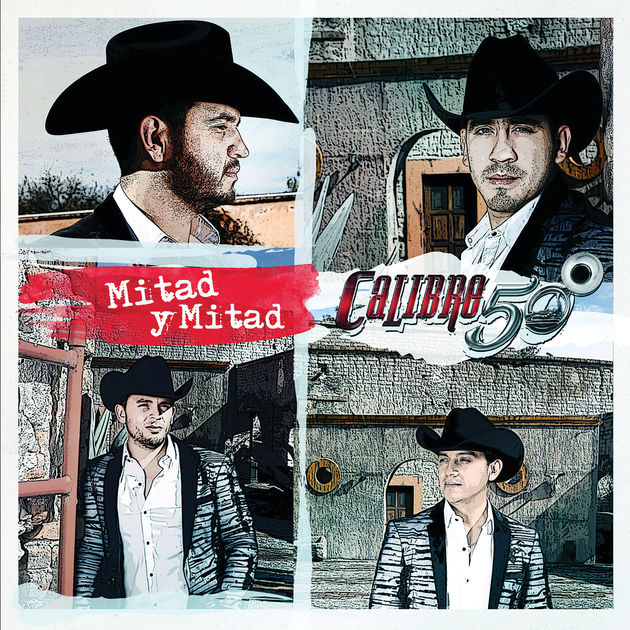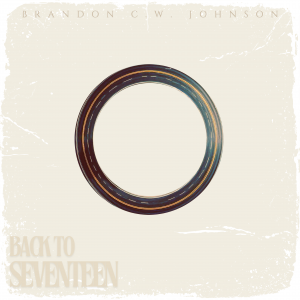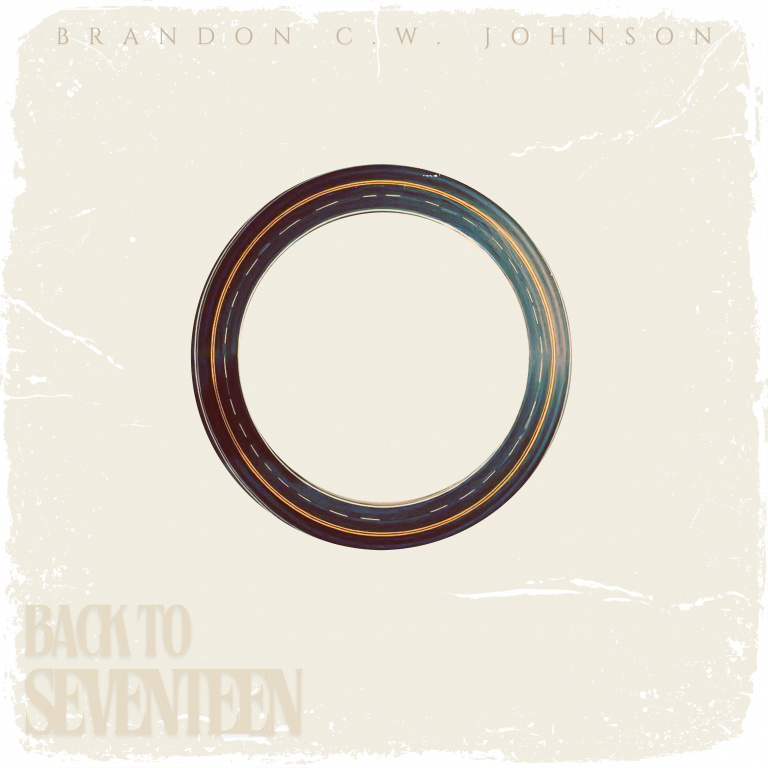
Calibre 50, from Mazatlan, Sinaloa, are a charting, award-winning quartet founded in 2010 by Eden Muñoz (vocals, accordion), Armando Ramos (guitars, vocals), Martín López (tuba), and Augusto (drums). Their provocative name (“armor-piercing bullet”) was chosen as a symbol for their music, which they hoped would penetrate geographical lines from Mexico and the United States to Latin America.
After playing gigs wherever they could — from backyard parties to small restaurants — they made a video of their song “The Infiernito,” which brought them to the attention of Disa and landed them a recording contract. They made their full-length album debut with Renovar o Morir in 2010. The album included the singles “Callejero y Mujeriego,” “Culiacán vs. Mazatlán” (a duet with Gerardo Ortiz), and “El Tierno Se Fue.” As Calibre 50 began to receive airplay and gain attention on YouTube, they set the stage for their 2011 breakout album, De Sinaloa Para el Mundo, which included the hit singles “El Tierno Se Fue” and “Te Estoy Engañando con Otra.”
Calibre 50 kept to a rigorous touring schedule and never stopped recording. Released in 2012, El Buen Ejemplo delivered no less than four hit singles: “Mujer de Todos, Mujer de Nadie,” “Bohemio Loco,” “El Buen Ejemplo,” and “Gente Batallosa.” A duet with the band Carnivale, “Gente Batallosa,” became the most played song of the year in Mexico and netted the band a Billboard Award for Song of the Year Vocal Collaboration. Calibre 50’s work ethic was as inspiring as it was exhausting. They issued La Recompensa in February of 2013. Its first single, “Aquí Estoy,” hit the top of the Regional Mexican Music airplay charts in both Mexico and the United States, followed in similar fashion by “Ni Que Estuvieras Tan Buena,” which was also radio’s most played song in the genre that year. Calibre 50 struck again in October with Corridos de Alto Calibre. This collection featured the single “El Immigrante,” which not only topped the radio charts, but remained in the number one spot for over ten weeks in Mexico. The intense pace of the road and the creative pressure in writing and recording resulted in personnel changes for the band in 2014. Lopez and Augusto were replaced by Alejandro Gaxiola on tuba and Erick Garcia on drums for that year’s Contigo album. It not only netted the band a number one spot for the title track single, but its full-length also claimed dominant spots.
Calibre 50 signed with Sony in late 2014. In January of the following year, Univision premiered the Televisia telenovela Que Te Perdone Dios (a remake of 2000’s Abrázame Muy Fuerte). The band was enlisted to deliver the theme song, “Aunque Ahora Estés con El.” It was released as a stand-alone single and landed in the Top Five on various airplay charts. The quartet issued a notoriously controversial pre-release single, “Se Nos Volvió a Pelar Mi Apá,” which was banned from airplay by some radio stations, thus affecting its chart position. They followed it with “La Gripa,” which was released simultaneously in November with the Sony album Historia de la Calle. The 14-track set offered a wide variety of Calibre 50 music showcasing northern corridos, reggae, cumbias, and rancheras that hit number one on the Latin Albums chart. It also included a cover of Joan Sebastian’s “Amor Limosnero.” In July 2016, the pre-album single “Amor del Bueno” went to number one on the Regional Mexican Songs download and airplay charts. In early September, the band issued three more singles, each a week apart from its successor: “Bola” was followed by “Siempre Te Voy a Querer” (which peaked at number five) and “Pa’ Qué Me Hacen Enojar.” The Desde el Rancho album was issued at the end of the month. It eventually peaked at number one on the Mexican Regional Albums chart and remained on the charts for more than 52 weeks.
The following year saw the band release the concert LP Vivo Auditorio Telmex at the same time they began posting clips of new tracks on the Internet. They were raw, hardcore corridos, and sounded like demos. It was a strategy to reveal to fans that the band had turned back toward its roots. The official pre-release track “Las Ultras” was nominated for Best Dance Song at that year’s Premios Juventud and the album landed at number three on the Top Latin Albums chart. In September, Disa issued the 15-track Guerra de Poder. Its single, “Corrido de Juantito,” topped the Mexican Regional Airplay chart. ~ Thom Jurek



























